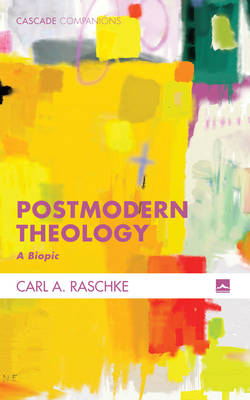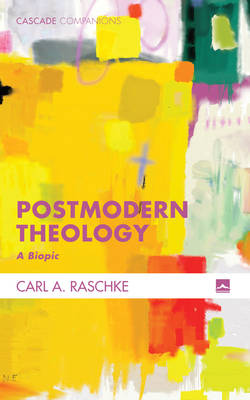
Je cadeautjes zeker op tijd in huis hebben voor de feestdagen? Kom langs in onze winkels en vind het perfecte geschenk!
- Afhalen na 1 uur in een winkel met voorraad
- Gratis thuislevering in België vanaf € 30
- Ruim aanbod met 7 miljoen producten
Je cadeautjes zeker op tijd in huis hebben voor de feestdagen? Kom langs in onze winkels en vind het perfecte geschenk!
- Afhalen na 1 uur in een winkel met voorraad
- Gratis thuislevering in België vanaf € 30
- Ruim aanbod met 7 miljoen producten
Zoeken
€ 67,95
+ 135 punten
Uitvoering
Omschrijving
Postmodern Theology consists in a sharp-edged retrospective and reflection on the forty-year history of the most important movement in contemporary religious thought that is only now passing from the scene. The author, Dr. Carl Raschke, is generally credited with having sparked the movement, even if he did not always happen to be its leading spokesperson. Not only has a comprehensive survey of postmodern theology in all its different phases and complexity not been published prior to the appearance of this book, but it is even more remarkable for someone who both "launched" it and had a central role in shepherding it along to offer what may be termed a "movement memoir." Postmodern Theology surveys and summarizes the major figures and trends that have given currency to such familiar expressions as "deconstruction," "deconstructive theology," "radical theology," "a/theology," "God is dead," and of course, "postmodernism" itself. Dr. Raschke also contextualizes the emergence of these catchy phrases from a frothy soup of new intellectual theories and philosophical innovations, which were international in scope but customized for both academic and popular religious writers--mainly in Britain and America--from the late 1960s onward.
Specificaties
Betrokkenen
- Auteur(s):
- Uitgeverij:
Inhoud
- Aantal bladzijden:
- 220
- Taal:
- Engels
- Reeks:
Eigenschappen
- Productcode (EAN):
- 9781498203890
- Verschijningsdatum:
- 12/07/2017
- Uitvoering:
- Hardcover
- Formaat:
- Genaaid
- Afmetingen:
- 127 mm x 203 mm
- Gewicht:
- 344 g

Alleen bij Standaard Boekhandel
+ 135 punten op je klantenkaart van Standaard Boekhandel
Beoordelingen
We publiceren alleen reviews die voldoen aan de voorwaarden voor reviews. Bekijk onze voorwaarden voor reviews.









